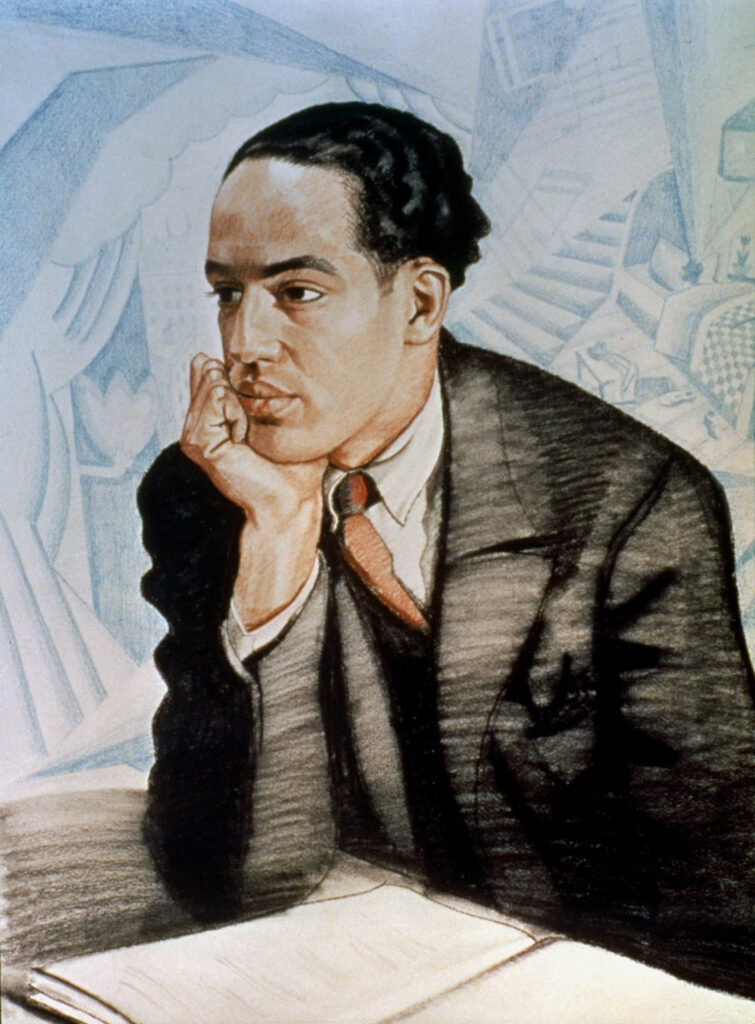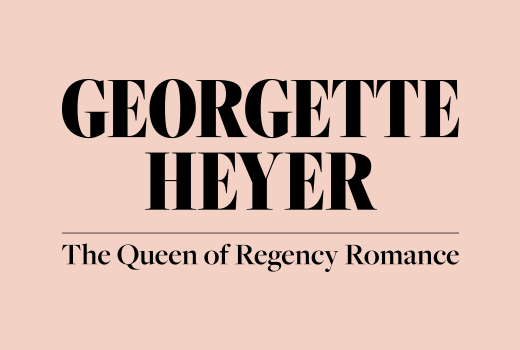About
Langston Hughes

Langston Hughes was born in 1901 in Joplin, Missouri. His maternal grandmother, a proud Abolitionist, furnished Langston’s childhood with stories of enslaved people making daring escapes and Black heroes. A nomadic childhood saw Hughes passed from guardian to guardian until he graduated high school in 1920, and moved to Toluca, Mexico, where his father owned a modest ranch.
While in Mexico, Hughes began his extensive publishing career. After his poem "The Negro Speaks of Rivers" was published in Crisis magazine, Hughes convinced his father to pay for one year of studies at Columbia University, where Hughes quickly embedded himself with the Black intelligentsia that would become known as the Harlem Renaissance.
“[The Negro Speaks of Rivers] is the quintessential early African American diaspora poem”
– Rafia Zafar, Professor of English, Washington University in St Louis
Hughes finished his first year at Columbia University and dropped out, finding a job delivering flowers in Harlem and soaking up the cultural scene instead. After spending the summer of 1922 earning, in his own words, "low wages at dull jobs," Hughes took a position as a saloon messman on a freighter bound for Africa, the S.S. West Hesseltine. On this voyage he pursued a broader education—one which started with him dumping his trunkload of books into the ocean as they departed New York.
“So that night I took [the books] all out on deck and threw them overboard. It was like throwing a million bricks out of my heart—for it wasn’t only the books I wanted to throw away but everything unpleasant and miserable out of my past: the memory of my father, the poverty and uncertainties of my mother’s life, the stupidities of color-prejudice, black in a white world […] All those things I wanted to throw away. To be free of. To escape from. I wanted to be a man on my own, control my own life, and go my own way. I was twenty-one. So I threw the books in the sea.”
– The Big Sea, (1940) Langston Hughes
On the ship, Hughes worked hard in the days and spent the nights writing poetry. Inspired by Harlem’s fervent jazz and blues scene, his poem "The Weary Blues" saw Hughes find his voice. His ability to capture and honor the rhythms and dialects of jazz and blues would become the trademark of his early works.
Africa delighted Hughes but also honed his sense of racial injustice and his resentment of colonialism. Returning to the States, Hughes soon set off for a few weeks in Paris. This period resulted in a matured set of poems, which drew together themes of the African diaspora and racial brotherhood, portrayed in the searing language and rhythm of blues and jazz.
By the mid-1920s, Hughes’ star had risen. His first collection, The Weary Blues (named after his seminal poem), was published by Knopf in 1926 to acclaim. This was shortly followed by the controversial collection Fine Clothes to the Jew (1927) which, despite signalling Hughes’ maturity as a poet, was savaged by the Black press for its unadorned depiction of Black life as Hughes saw it.
Hughes returned to finish his college education with a scholarship to Lincoln University in Pennsylvania, graduating in the Class of 1929. The university now houses the Langston Hughes Memorial Library, containing Hughes’ personal library which was bequeathed to the University upon his death.
In 1930 Hughes published his first novel, Not Without Laughter. This semi-autobiographical novel was described as ‘a living challenge to our civilization’ and won the Harmon Gold Medal for literature. This was followed in 1934 with the publication of The Ways of White Folks, a collection of short stories that struck Hughes’ distinctive balance of humor and tragedy in its depiction of the relationship between white and Black characters.
Having made his mark on the Harlem Renaissance with both poetry and prose, Hughes aimed next for success on the stage, beginning with Mule Bone, a folk comedy designed to undermine the ‘earnest’ nature of contemporary Black drama. In the fallout of the Scottsboro controversy of 1931, Hughes wrote Scottsboro Limited — a radical verse play that urged Black and white workers to ‘raise the red flag’ and sing The Internationale. Hughes’ deepening political tone caught the attention of the Soviet Union, and he was invited to take part in a state-sponsored film about race relations in America called Black and White. Hughes accepted, and spent an influential year from 1932-33 in the Soviet Union. While the controversial project collapsed, some of Hughes’ most radical poems, such as "Good Morning, Revolution" were written around this time.
In the mid-1930s, Hughes’ growing popularity led to the first Broadway run for his play Mulatto. Based on one of the stories in his popular 1934 short story collection, The Ways of White Folks, Mulatto had an 11-month run comprising 373 performances.
In 1937, Hughes struck a deal with the Baltimore Afro-American to act as a foreign correspondent in the Spanish Civil War, a move that coincided with pleas from the English aristocrat Nancy Cunard to join a cause that would become defined by leftist writers like George Orwell and Pablo Neruda. Hughes’ dispatches documented the progress of America’s first racially integrated volunteer military unit, The Abraham Lincoln Brigade. The official US military would not drop its official policy of segregation until 1948.
Returning to New York later that year, Hughes opened a revolutionary all-Black theatre of his own and staged his play Don’t You Want to be Free?, a lyrical dramatization of moments from Langston’s poetry blended with Black music. In 1940, Hughes switched lanes once more to produce his first autobiography, The Big Sea. Its section on the Harlem Renaissance would "never be surpassed as an original source of insight and information on the age."
During the 1940s, Hughes reached the masses with his "Jesse B. Semple" column in the Chicago Defender. Semple (almost always referred to as ‘Simple’) was a character devised by Hughes to act as a "folk philosopher" — an everyman for Black America. Hughes himself said of Simple: “...these tales are about a great many people — although they are stories about no specific persons as such. But it is impossible to live in Harlem and not know at least a hundred Simples…”. The character would inspire four volumes of stories and be remembered as one of Hughes’ most beloved creations.
Hughes achieved his first true Broadway hit in 1946, writing the lyrics for Street Scene. His song "Moon Faced, Starry Eyed" was considered the best Broadway song of the year.
During the 1950s, buoyed by financial success, Hughes pursued projects that further documented Black life in America. The Sweet Flypaper of Life (1955), an innovative collaboration with photographer Roy DeCarava, won rhapsodic applause for its blend of Hughes’ fictional depiction of Black family life in Harlem and DeCarava’s humane documentary photography. In the mid-50’s, Hughes started work on his "urban-folk-Harlem-genre-melodrama" Tambourines to Glory, as well as an accompanying novel. Hughes perfected his synthesis of theatre and gospel in Black Nativity, which opened to rapturous applause on December 11, 1961, at the 41st Street Theatre on Broadway. To this day, Black Nativity is a staple of Christmas stage programming across America and enjoyed a film adaptation in 2013 starring Forest Whittaker and Angela Bassett.
“Black Nativity marked a major breakthrough in the gospel musical form. As with his evolving mastery of the blues in the 1920s, when he had moved from merely framing the black form within traditional European stanzaic patterns to a complete immersion in it—writing blues themselves, without mediation—Hughes now deliberately allowed black music and religion to overwhelm the traditional play form.”
— Arnold Rampersad, The Life of Langston Hughes
Commercial successes such as Black Nativity, the character of Jesse B. Semple, and Street Scene made Hughes one of the most recognized Black writers of his day. As the emergence of the Black Panther movement brought forth a new kind of Black activism associated with James Baldwin and Amiri Baraka, Hughes’ posthumous collection The Panther and the Lash proved that he did not merely provide shoulders on which these writers could stand, but that he had long-since mastered the revolutionary rhetoric that they went on to employ.
Langston Hughes continued to write poetry throughout his life and to this day remains one of the best-known poets in America.
He passed away in 1967.



